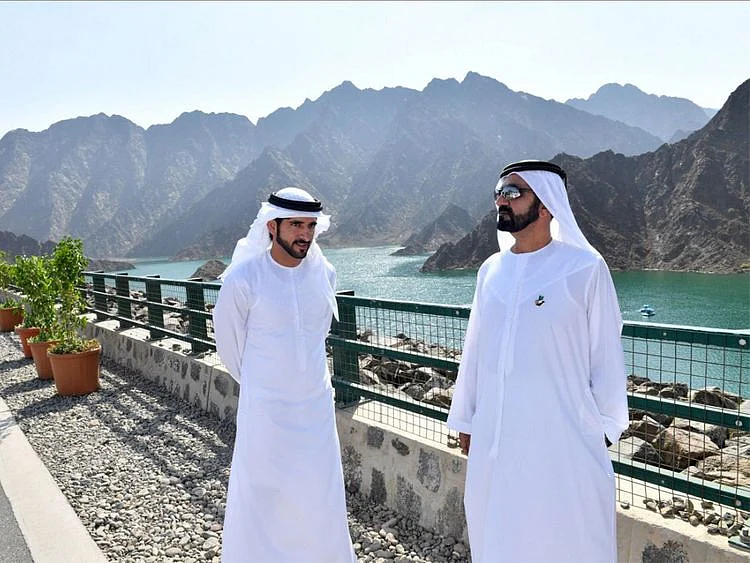Dubai hydroelectric power station to cost Dh1.4b; Dewa awards contract for Hatta project
Contract awarded for 250 MW hydroelectric power project, the first of its kind in the Gulf

Dubai: Dubai is about to see a first-of-its-kind project in the region, using a fascinating work of engineering: water acts as a battery.
Known as pumped-storage hydroelectric power plant — also known as "pumped hydro" — the design allows for rainwater in a dam to be used over and over again to generate electricity, with a design life of up to 80 years.
This is about to happen after the emirate's utility, Dubai Electricity and Water Authority (Dewa), awarded Strabag Dubai LLC, Strabag AG, Andritz Hydro and Ozkar consortium the construction contract for the Dh1.437 billion hydroelectric power station at Hatta.
The contract award was announced on Saturday.
This forms part of the Comprehensive Development Plan for Hatta, launched by His Highness Sheikh Mohammed bin Rashid Al Maktoum, Vice President and Prime Minister of the UAE and Ruler of Dubai.
The project is the first of its kind in the region and will generate 250 MW.
The project is expected to last up to 80 years and is scheduled to be commissioned by February 2024. EDF has been appointed the consultant for this project.
This strategic project will diversify the energy mix, and support the economic, social and environmental development of Hatta.
The project will also help the emirate achieve the goals of the Dubai Clean Energy 2050 — to provide 75 per cent of Dubai’s total power output from clean energy by 2050.
Dewa will provide leading and innovative job opportunities for UAE nationals to support the Hatta Comprehensive Development Plan.
These include positions at the Visitor Centre, and other outdoor activities and tourist facilities associated with the project.
This supports the sustainable development of Hatta to make it one of the most prominent tourist attractions in the Emirate.
Pumped storage hydroelectric power
“This Dh1.437 billion pumped-storage hydroelectric power station project is part of our efforts, initiatives, and plans to achieve the vision of His Highness Sheikh Mohammed bin Rashid Al Maktoum, Vice President and Prime Minister of the UAE and Ruler of Dubai.
DEWA’s strategy supports the UAE Centennial 2071, the UAE Vision 2021, and the Dubai Plan 2021 to ensure a sustainable, happy future and support the UAE’s aim to become first in everything,” said HE Saeed Mohammed Al Tayer, MD and CEO of DEWA.
What is pumped storage hydroelectric power
The hydroelectric power station will use the water in the Hatta Dam, stored in an upper reservoir that will be built in the mountain. Turbines that use clean and cheap solar power from the Mohammed bin Rashid Al Maktoum Solar Park to pump water from the dam to the upper reservoir. The waterfall from the upper reservoir will generate electricity using turbines when required. The efficiency of the power generation and storage cycle will reach 80 per cent within 90 seconds of the response to demand for electricity. The key to this system is the use of reversible pump-turbine/motor-generator assemblies can act as both pumps and turbines. These plants are typically highly efficient (round-trip efficiencies reaching greater than 80%) and can prove very beneficial in terms of balancing load within the overall power system. Pumped-storage facilities can be very economical due to peak- and off-peak price differentials and their potential to provide critical ancillary grid services.
"We are committed to supporting sustainable development, conserving natural resources and achieving economic, social and environmental development, in line with the aspirations of good leadership," said Al Tayer.
"Our use of hydroelectricity is part of our drive to achieve the objectives of the Dubai Clean Energy Strategy 2050, to transform the Emirate into a global hub for clean energy and green economy, and to increase the share of clean energy mix in Dubai to 75 per cent by 2050," he added.
"Hydroelectricity is the generation of power by harnessing energy from moving water, which is one of the main sources of renewable clean energy in the world,” said Al Tayer.
Sign up for the Daily Briefing
Get the latest news and updates straight to your inbox
Network Links
GN StoreDownload our app
© Al Nisr Publishing LLC 2025. All rights reserved.